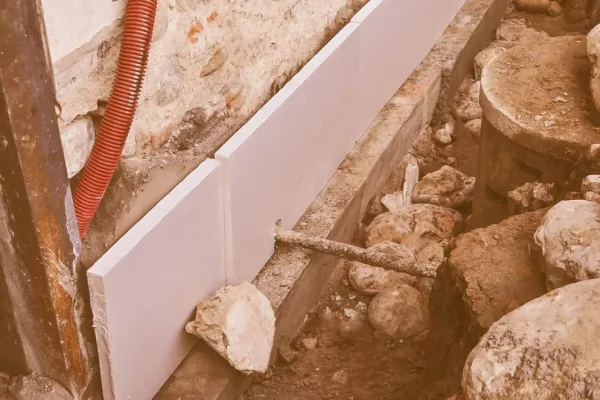The property buying journey and government initiatives that support it are constantly changing. As of 2024, the well-known Help-to-Buy scheme has come to a close, leaving many prospective homebuyers needing clarification and guidance about the alternatives and adjustments in store.
In this article, we’ll provide a complete breakdown of how to get through the post-Help-to-Buy era. We’ll explore why the scheme ended, other potential avenues homebuyers can use and a detailed overview of everything you need to know.
So, for those who may have been relying on the Help-to-Buy scheme as a lifeline, worry not. We’ll ensure that you leave here clear of what else is available for you.
Let’s get started.
Why is Help-to-Buy ending?
Help-to-Buy provided a massive boost to first-time home buyers. In fact, in its ten years of operation, the scheme has helped 375,000 home buyers with their purchases. Meanwhile, the government provided almost £24 billion in loans to first-time buyers. So, after all that success, why is it ending? Unfortunately, there isn’t a clear-cut reason as to why.
One of the reasons suggested for this is due to the decline of the market. Much like other industries, the property industry has been affected by rising interest rates and the cost-of-living crisis.
The Help-to-Buy scheme first materialised due to the 2008 financial crisis. During this time, many traditional lenders hesitated to engage with buyers who had low deposits, fearing a repeat of earlier events. Sensing the need for intervention, the government rolled out the Help to Buy scheme, a lifeline for those looking to own their first homes by providing access to the deposit required.
While the scheme helped many on their homeownership journeys, it faced its fair share of challenges.
One prominent critique of Help to Buy is its contribution to house price inflation. Critics argued that the scheme inadvertently affected property prices, making it a double-edged sword for aspiring homeowners. Additionally, there are concerns about buyers potentially overpaying for new build homes, as the demand generated by the scheme pushed prices beyond what some deemed reasonable.
Whatever the case, as of 2024, the Help-to-Buy scheme will no longer exist. So, what other options are there?
What will replace Help-to-Buy in 2024?
Unfortunately, as it currently stands at the time of writing, no alternative scheme is as impactful as the Help-to-Buy scheme. The government has yet to release any hints to point towards this being a priority. However, it is expected that 2024 will be an election year, which may result in the announcement of new housing policing.
However, here are some other alternatives for those looking for help in making their first property purchase;
Help to Buy: Equity Loan (2021 – 2023)
First, the Help to Buy Equity Loan scheme ended in 2023. Even though it has ended, we thought we’d include it here in case you may have thought it was still available but just not covered here. This was a great scheme that allowed buyers to purchase while providing equity to the government to help in reducing the overall mortgage requirement. Unfortunately, this scheme has ended; however, there is always a chance that the scheme or something similar can make a reappearance in the future.
Help to Buy: Mortgage Guarantee Scheme
One of the major concerns many first-time buyers have is securing a mortgage in the first place, with the deposit requirements providing a major issue. However, the mortgage guarantee scheme allows buyers to make a purchase with only 5% of the deposit required.
Many have to spend many years saving up for a deposit so that they can apply for a mortgage. However, the mortgage guarantee scheme helps buyers secure part of the deposit.
This certainly helps with the challenges of securing mortgages with low deposits. This initiative aims to provide confidence in lenders by providing a government-backed guarantee on a portion of the mortgage. This not only reduces the risk for lenders but also opens doors for buyers with smaller deposits. This should help remove some of the barriers preventing buyers from making a purchase.
Currently, the eligibility criteria for the Mortgage Guarantee Scheme is:
• The property value must be under £600,000
• The mortgage lender you select must participate in the scheme
• Deadline is June 2025
The mortgage guarantee scheme has already been extended twice, with the new deadline falling in June 2025, so if this is something of interest to you, make sure you take advantage of it in the next year or so.
Shared Ownership
Another option for first-time buyers is shared ownership, which provides a more flexible and affordable approach to purchasing a property.
The concept has been around for quite some time and allows homebuyers to purchase a share of a property (typically between 25% and 75%) and pay rent on the remaining portion. The rent is capped at 3% for the first year, and in subsequent years, the rent price increases by the RPI (Retail Price Index) plus 0.5%
An example of this would be a house worth £150,000 purchased with 50% ownership. In the first year, the rent would be 3% of £75,000 (50% of the property), which is £2250 for the year.
This significantly reduces the upfront cost and opens doors for individuals who find full ownership financially challenging.
The flexibility it offers makes Shared Ownership particularly suitable for those who wish to step onto the property ladder but may need more financial means to do so outright. It also allows buyers to work their way up to 100% ownership. So, while they pay rent on the portion not owned, they can pay additional amounts to continue buying further shares in the property.
Shared ownership provides a long-term route to purchasing a home with reduced upfront costs.
First Home Scheme
Another great initiative is the first home scheme, which offers eligible individuals the opportunity to purchase properties at a substantial discount – at almost 30-50% off the market value.
As such, the First Home scheme presents a unique proposition: a chance to secure your dream home at a considerably reduced price. The initiative specifically targets new-build homes, and developers showcase eligible properties with discounts, creating a win-win situation for first-time buyers.
However, eligibility criteria must be met to unlock the doors to your ‘First Home’. Aspiring homeowners must be over 18, first-time buyers, and capable of securing a mortgage for at least half the home’s value. The initiative aims to support those with a total household income not exceeding £80,000 (or £90,000 in London), ensuring accessibility for a broad spectrum of potential buyers.
Additionally, local authorities can prioritise specific groups, such as key workers like nurses and military personnel or those on lower incomes. This prioritisation ensures that home ownership is accessible to those most in need within a local society. Additionally, the First Homes scheme allows the resale of a property to other new buyers; this ensures a cycle of homeownership accessibility for more individuals.
Help to Build
Another option to purchase a home is to build it. The Help to Build initiative extends a helping hand to individuals in England with a dream of custom building or self-building their own homes. Through the scheme, you have a say in your dream home’s design, layout, and location.
This government-backed initiative comes in the form of an equity loan. It allows you to purchase a plot of land and build your dream home from scratch. The equity loan amount can range from 5% to 20% (or up to 40% in London) of the total estimated cost, providing a helpful financial boost to get you on your way.
However, to participate in the Help to Build initiative, there are specific eligibility criteria that must be met.
They are:
- Being 18 years or older,
- Having the right to live in England
- Securing a self-build mortgage from a lender registered with Help to Build
Additionally, the initiative allows an investment cap of up to £600,000 for your new home. This included the land and construction costs, with no more than £400,000 allocated to the building expenses.
Lifetime ISA
Another option is a Lifetime ISA. This allows individuals to save for their first home or retirement.
The ISA comes with a maximum annual contribution of £4,000; the government sweetens the deal by providing a generous 25% interest, effectively adding up to £1,000 to your savings each year.
However, there are conditions attached. The savings accumulated through this ISA can only be used for buying a first home, with a maximum property value capped at £450,000. Alternatively, the funds can be set aside for your retirement. To qualify for the Lifetime ISA, you must open an account before turning 40, and the savings window is open from age 18 to 50.
Right to Buy
For council house tenants, there is another option available to achieve homeownership. The Right to Buy Scheme offers a chance to purchase the council home at a discounted price.
Eligible council house tenants have the chance to buy their home at a substantial discount, with the maximum discount capped at £96,000 (or £127,900 in London).
Additionally, there are other eligibility requirements. First, the property must be your ‘main’ or only home, and you must be a ‘secure tenant’ who has successfully passed the tenancy trial period. Additionally, having had a public sector landlord for a total of 3 years (not necessarily consecutively) is also a requirement.
Rent to Buy
Another option available is the Rent to Buy scheme. This is another scheme that may take longer but will allow you to own a home gradually. With this scheme, tenants rent a home at a discounted rate of around 20% below the market to allow them to save up for a deposit. Additionally, the eventual deposit required will only be 5% of the property value. This is a great way to try a home before buying while contributing towards the property.
Armed Forces Home Ownership Scheme
This scheme enables armed forces personnel to borrow up to 50% of their annual salary, serving as a financial boost specifically reserved for a house deposit or other home-buying costs. The capped borrowing amount stands at £25,000, offering a substantial contribution towards the initial steps of property ownership.
As with any initiative, the Armed Forces Home Ownership Scheme comes with specific eligibility criteria that applicants must meet. These include having completed the required amount of military service, being a non-reservist or a part of the Military Provost Guard Service, having over six months of service remaining at the time of application, and meeting specific medical criteria.
HOLD
HOLD, standing for Home Ownership for People with Long-Term Disabilities, is an initiative tailored for individuals facing long-term disabilities. The scheme is similar to the Shared Ownership model, where individuals can gradually acquire ownership of their homes.
This allows individuals to purchase an initial share of a home, typically ranging from 10% to 75% of its market value. This initial purchase is complemented by paying rent to the housing provider for the remaining share.
How will the lack of help to buy affect sellers?
In some areas of the country where the Help to Buy scheme has been used for many home purchases, sellers may find a limited pool of buyers. With buyers needing help to get the funds ready to make an offer, many sellers may find it no longer possible to sell a house fast.
















